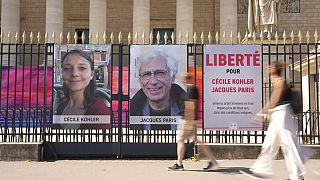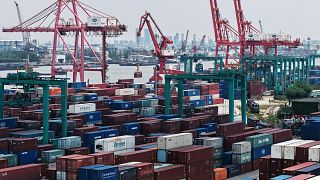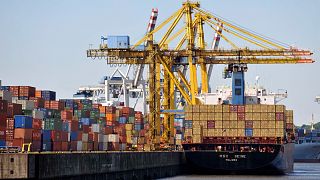China
Hong Kong’s lower house is entangled in hearing a case on Ivory trade legality. The hearing in the legislature was marked by a testy standoff between traders who argue their business is legal, and conservationists who say Hong Kong’s prime role is pushing elephants towards extinction.
The standoff has lead to a series of demonstrations both in Hong Kong and a few African countries in attempt to halt wildlife trafficking through the Chinese-ruled city.
Erik Mararv, manager of Garamba National Park in the Democratic Republic of Congo, said 100 elephants are poached a day while 1,000 rangers have been killed over the last 10 years trying to protect them.
“This is a situation where there are no winners. There are only losers. The amount of suffering and damage that single set of ivory caused in that part of Africa that day cannot be described with words. If Hong Kong were to compensate, the ivory traders for the ivory as it closes down its trade we will see a rise of poaching in Africa. Of that we can be sure. And the message to the poachers will be that the government of Hong Kong is buying up ivory and we will see more animals and more people dying,” Erik said.
On the other hand, ivory traders more so from Hong Kong have defended their business terming it legal.
“Why does the government speak so sadly (about elephants being killed). Those Africans and foreigners come here and they speak of sadness… saying we’re killing elephants. It has nothing to do with me, it’s got nothing to do with our trade of ivory carving that has been around for centuries and the products we’ve put our blood and sweat into. And now you want to get rid of me, with what reason?” Mong Wai-Hu, a former ivory trader told Hong Kong legislature.
The United States, Singapore and China have banned the ivory trade and the mainland will close down all such operations by the end of this year. Hong Kong, a special administrative region of China, has only timetabled a ban by 2021.













01:05
Zimbabwe to cull 50 elephants, distribute meat to locals
00:10
Elephant spotted in Senegalese park gives hope to conservationists
Go to video
To avoid conflicts with locals, Zimbabwe tracks elephants with GPS
Go to video
Over 100 vultures dead after eating poisoned elephant in South Africa
Go to video
African elephant Pupy arrives in Brazilian sanctuary after 30 years in Buenos Aires zoo
01:08
Malawi-Zambia communities threaten legal action over elephant relocation